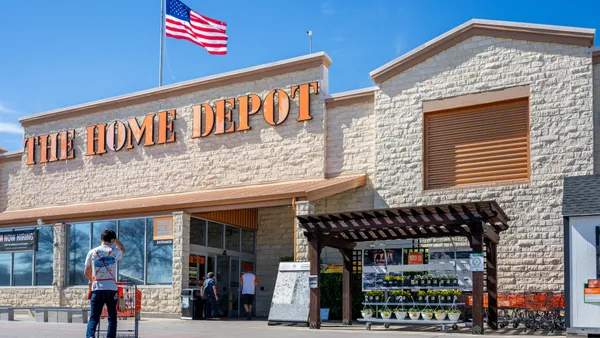Embracing technology is key to getting ahead in construction. Many contractors struggle enough with simply selecting and integrating tech solutions that can help maintain minimum productivity gains that keep them in business.
Haskell, on the other hand, not only bought into the industry's tech zeitgeist but has actively developed its own innovative solutions to stand out as a leader in tomorrow's construction landscape.
Based in Jacksonville, Florida, Haskell is a $1 billion company that hasn't let complacency seep into its fabric. From warehouses to hospitals to infrastructure, the general contractor is on the cutting edge — using tools like virtual reality, drones and building information modeling (BIM) to plan and build projects as well as to train its employees.
Investing in itself
Haskell, one of the country's top 100 contracting firms by revenue, is also an investor in forward-thinking change, especially through its innovation and technology investment arm, Dysruptek. The new entity and its undertakings, said Cutler Knupp, director of Dysruptek's investments, represents a concerted effort on behalf of Haskell's leadership to leverage technology for healthy industry disruption.
"At the core [of that philosophy]," he said, "is that the time to invest and explore the opportunity that technology is going to bring to our industry is now."
The focus on technology could also be attractive to new recruits, he said. "If they join Haskell, they know they're going to be working with a group that is innovating and arming them with the best technologies available to do their jobs."
This year, Dysruptek announced a partnership with Brick & Mortar Ventures, an early-stage venture fund that targets the AEC industry, to further invest in disruptive startups and to partner with clients and other industry stakeholders to develop and patent its own solutions.
"If they join Haskell, they know they're going to be working with a group that is innovating and arming them with the best technologies available to do their jobs."

Cutler Knupp
Director, Dysruptek
Just prior to that partnership, Haskell became an investor in Blox, a firm that originated the Design Manufacture Construct (DMC) delivery model. DMC combines vertically integrated design with modular construction in a way that Haskell says allows it to "control as many design and construction variables as possible" with "manufacturing precision and speed of delivery."
Healthcare is the primary segment Haskell will target with Blox’s expertise, but the firm anticipates relying on the partnership to help it consistently deliver across a range of projects.
Santa Monica, California-based data automation firm Sixgill became another partner of Haskell's this year in a deal that targets research of new tech-based solutions for common industry problems.
Sixgill and Haskell's Dysruptek arm will, for example, develop and deploy new jobsite sensor data automation technology to track worker movements so that they can determine if those workers are engaged in potentially dangerous situations when exposed to jobsite equipment.
Adding to Haskell's tech push, Dysruptek last year established a research and development center in Atlanta.
A contractor at its core
At its core, however, Haskell is first and foremost a contractor and has been recognized for its achievements in erecting impressive structures. In August, the Associated Builders and Contractors' North Florida Chapter highlighted four Haskell projects with Excellence in Construction awards:
- Church of Jesus Christ of Latter Day Saints in Barranquilla, Colombia.
- Frisch Welcome Center at Jacksonville University in Jacksonville, Florida.
- Hale Koa Maile Tower Renovations in Honolulu, Hawaii.
- In-N-Out Processing and Distribution Facility in Lancaster, Texas.
The company's founder, Preston Haskell, helped co-found and guide the Design-Build Institute of America, and Haskell delivers many projects using the design-build method.
One of those was a Gatorade bottling and distribution facility in Wytheville, Virginia, which, at more than 940,000 square feet, was the largest LEED Gold Certified food and beverage facility in the world at the time it was completed.
But there is a component of cutting-edge technology in everything Haskell builds, and Knupp said everyone associated is enthusiastic about what the company will roll out next, even if that means navigating a learning curve.
"I would say the idea here is that there will be lessons learned and growing pains, but at the same time, this is really essential to our success moving forward," Knupp said. "[Technology] is well-received from the field on up."


 Read more
Read more










